Blog
Unless otherwise stated, content is shared under CC-BY-NC Licence
The fire at the National Museum in Brazil – on saving objects and digital information
Millard Schisler is Adjunct Faculty Museum Studies at Johns Hopkins University and currently working as a researcher at the Digital Culture Center, CEBRAP in São Paulo, Brazil
As news of the fire broke out on Sunday, September 2nd, 2018, the desperation hit everyone working with museums, archives and preservation of cultural heritage. Those that knew the museum, quickly realized the potential for loss of the majority of the collection due to the size of the fire as viewed through the live news sources. The following day, as the ashes were still smoldering I wondered how much of the collection had been digitized. It also dawned on me that whatever had been digitized or photographed could somehow survive as a testament to what was in the collection – not ideal, because many types of research and viewing cannot be done on a digitized version of an object – but losing the object and not having any information on it at all was even worse. Slowly news started coming out on certain collections of historical documents, photographs, and early wax cylinder recordings, among others, that had been digitized in earlier projects and even though the originals no longer remained, the digitization of these objects has provided us with something to live with, as long as these digital assets can be cared for the long-term.
Transforming Archives / Opening Up Scotland’s Archives: Winning in 2016
Victoria Brown is Programmes and Development Manager and Audrey Wilson is Skills for the Future Project Manager at the Scottish Council on Archives, and in 2016 they won a Digital Preservation Award for Teaching and Communications
When announcements of the nominations for the 2018 DPC digital preservation awards appeared, it was hard to believe two years had passed since (as hopeful nominees), we entered the grand marble foyer of the Wellcome Trust HQ. The list this year is truly impressive. The scale of the digital preservation challenge can obscure the fact that there are so many amazing projects and initiatives underway. Projects that are tackling sustainability, driving skills development and addressing the trickiest of quandaries through imaginative and applied research. It is both crucial and excellent that this work is being celebrated, recognised and shared.
New Humanist Archive — A Feat of Preservation
Tom Rodenby works for Exact Editions
Every issue of the New Humanist and its predecessors dating back to 1885 is now available through the state-of-the-art digital edition developed in partnership with Exact Editions. We like to think that those historical issues have now moved into the ‘safe pile’. In their digital format, they will stride forth into the future to be read by new generations of readers and thinkers.
Against the clock: videotape digitisation and preservation now!
Stephen McConnachie is Head of Data and Digital Preservation and Charles Fairall is Clifford Shaw Head of Conservation, at the BFI
In the late 1950s magnetic videotape recording transformed the way television programmes were made, edited and broadcast. For a generation, the 2” Quadruplex format dominated the UK broadcast industry – the machinery was manufactured to military specifications and some 60 years on, it is still just possible to replay the jumbo-sized tapes. Extinction for 2” Quad came remarkably quickly, with production of the last machinery ceasing suddenly in the early 80s. A succession of smaller tape formats followed, each one providing more and more sophistication from less and less physical footprint; open reels were replaced by cassettes and analogue transitioned to digital.
Digitally Preserving the History of CILIPS
Sean McNamara is Acting Director of Chartered Institute of Library and Information Professionals (CILIP) in Scotland CILIP) in Scotland
Libraries and digital preservation go hand in hand in Scotland. All across the country there are exciting initiatives ongoing in organisations such as the National Library of Scotland as well as Scotland’s thriving network of public and university libraries: ground-breaking projects only made possible because of the skills of Scotland’s library and information workforce.
With all the work that is going on we at CILIPS became aware that our own organisation did not have a strong digital history. Despite being over 100 years old (previously the Scottish Library Association) all our history was held in archives on site or with the National Library. With that in mind we decided to look at creating a digital archive via a timeline and highlighting notable people.
Attention Please!
Sean Barker runs a Technical consultancy on Enterprise Integration and Information Sharing for Products
Some time back long term data sustainment lost the attention of my main funders, so last month - when I retired - I thought I'd have a chance to return my attention to it properly. Unsurprisingly, my immediate attention has been taken up with VAT returns, no longer putting off redoing the kitchen and the magnificent local buzzards circling low overhead.
Attending to the right thing is not straightforward. A colleague once said that a managing director should have nothing on their desk, otherwise that becomes locus of their attention rather than the future of the company. Look at any Computer Aided Design (CAD) demo and your attention will be drawn to a complex 3-D part rotating to show itself off. However, the future in CAD lies in the change from drawings to models, something only hinted at by the dull text boxes at the display's edge and which did not grab your attention. Although early CAD did replaced the drawing board, the modern CAD model replaces the model shop where skilled craftsmen would construct wooden mock-ups, For example, Airbus created a full scale mock-up of the A340 wing, said to cost a million pounds, but saving several times that through design improvements. Now model-based CAD saves the cost of building those physical mock-ups.
Libraries and the future of their USP
Pamela Tulloch is Chief Executive of the Scottish Library and Information Council
Everyone tells us we live in a digital world and to a certain extent this is true. As a librarian, I first started creating digital content in the 1990’s and looking back, what we were doing then, does look so last century now. These are the digital dark ages and yet the content which was created remains as relevant now as it was then. So much has changed in a few decades and how expect to access content has changed too.
Preserving Knowledge – Are we keeping the right things?
Neil Jefferies is Research and Development Project Manager for the University of Oxford's Bodleian Libraries Research & Learning Services
I feel that there is an increasing disconnect between the digital artifacts that we capture and the mechanisms used to create the knowledge that they embody. This contributes to some of the difficulties with preserving these born-digital materials in a way that effectively retains their meaning.
The seed for this train of thought has been my involvement in the Cultures of Knowledge project and the accompanying online resource Early Modern Letters Online (EMLO). The aim of the project is to use digital methods to reassemble and interpret the correspondence networks of the early modern period (roughly 1550-1750). This period is interesting in that it saw the emergence of a significant social network across Europe and the associated Empires, enabled by the development of postal services and increased population mobility. This resulted in an explosion of intellectual activity that laid the foundations for the Enlightenment and established patterns for scientific discourse that persist until the present day - for example, the foundation of The Royal Society and the publication of the first scientific journals.
If they can’t agree on the plug, how can they ever agree on the metadata?
Miguel Ferreira is Executive director at KEEP SOLUTIONS based in Braga in Portugal
“If they can’t agree on the plug, how can they ever agree on the metadata?”… This sentence has stuck with me for over 13 years now. It came about in the summer of 2005, when a DSpace user group meeting was about to take place in the beautiful city of Cambridge, in the UK. The meeting intended to give a voice to real-world users and to provide an opportunity for young developers such as myself to learn from the collective wisdom of all of those present.
Preserving the past: the challenge of digital archiving within a Scottish Local Authority
Lorraine Murray is Archivist at Inverclyde Council in Scotland
During my masters course where I studiedInformation Management, Digital Preservation and Archives at the Department of Information Studies (or as I knew it at the time; HATII!) at The University of Glasgow, I came to realise how useful it was to create and use digital content with the aim of making historical information and original source material more widely accessible. However, the successful curation, management and preservation of any digital object is an absolutely essential part of this process.































































































































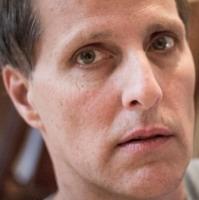


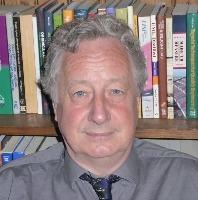
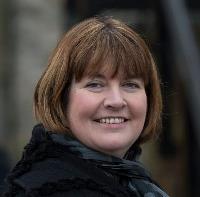

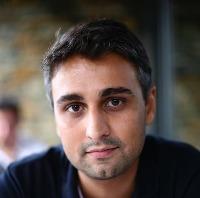
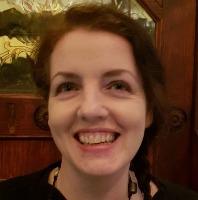
Read more...